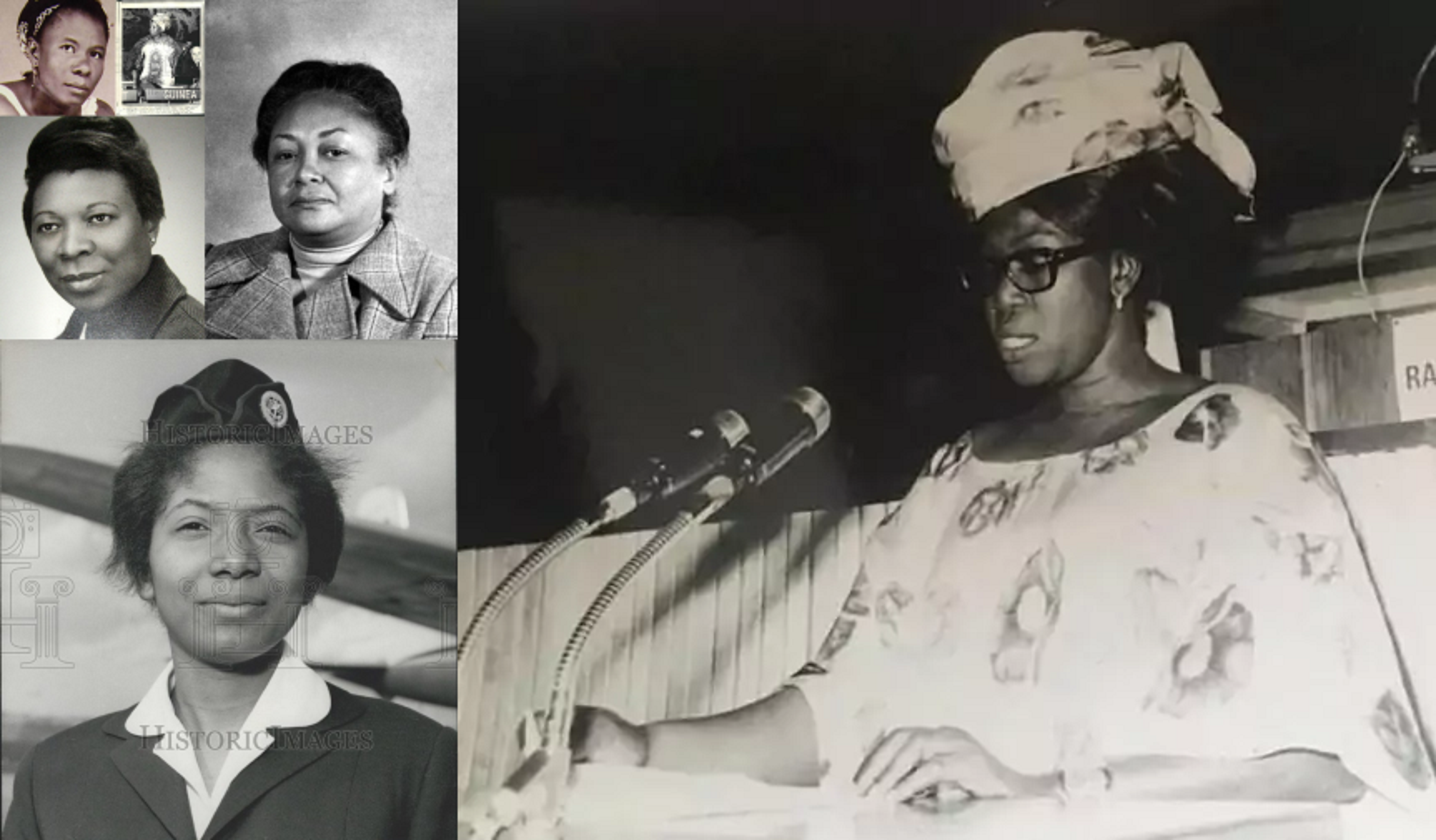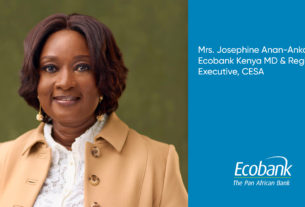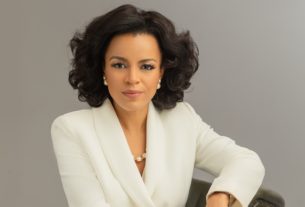To celebrate the international day of women’s rights, Africanshapers feels it has a duty to pay tribute to the “Immortals”, pioneering women in Africa, trail blazers who cleared the path for the current generation. Dead or still alive, little known to the general public, they paved the way for other women from their countries and the continent. Discover the mini-profiles of 30 African pioneers who made history.
Jeanne Martin Cissé (Guinea)
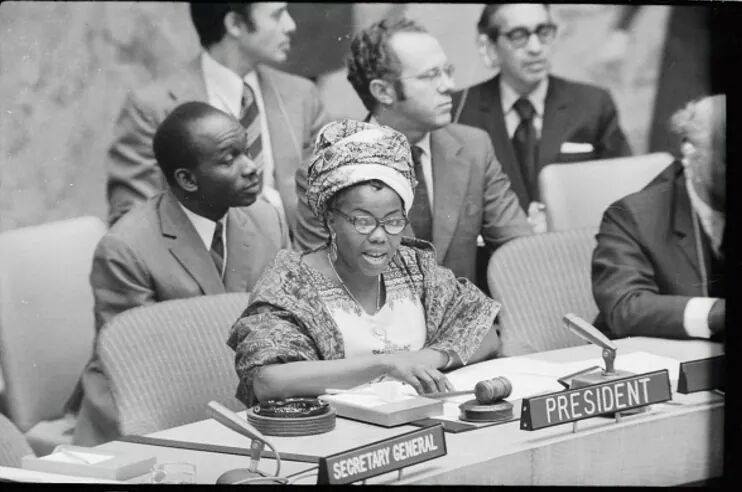
Jeanne Martin Cissé was born on 6th April 1926 in Kankan, Guinea and died on 21st February 2017 in Conakry. She was one of the first Guinean teachers in her country, a politician (Minister of Social Affairs) under the Sekou Touré regime, and Secretary General of the Pan African Union of Women.
In 1972 she became the first woman to chair the United Nations Security Council. At that time she was Guinea’s permanent representative to the United Nations. In 1974, Jeanne Martin Cissé was elected president of the United Nations Special Committee against Apartheid. She made several trips to Europe, Asia and Latin America, to support the ANC (African National Congress) at the international level.
Dr Hawa Abdi (Somalia)
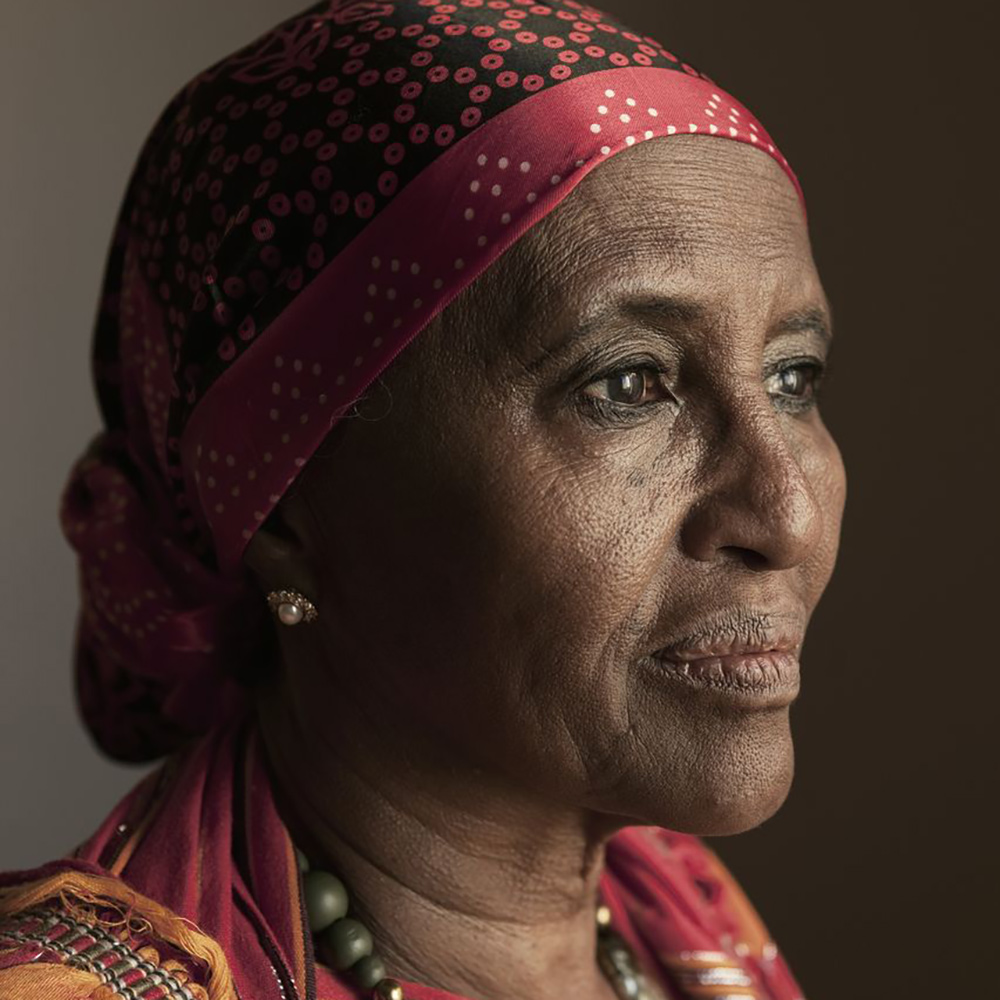
Born on 17th May 1947 in Mogadishu, Hawa Abdi was Somalia’s first female gynaecologist, after graduating in medicine in 1971 from Taras Shevchenko National University in Kyiv. In 1979, she obtained her law degree from the University of Mogadishu. She is the founder of the Rural Health Development Organization (RHDO), later renamed the Dr Hawa Abdi Foundation, which has clinics offering free health care as well as a humanitarian camp. During the 2011 food crisis in the Horn of Africa this camp hosted up to 90,000 people, 75% of whom were women. The Dr. Hawa Abdi Foundation complex has a hospital, school and food centre, and it provides shelter, water and medical care for women and children. Care is provided by five doctors, including Dr Hawa Abdi’s two daughters Deqo and Amina, and 16 nurses, who see 400 patients every day and perform numerous surgeries. The primary school accommodates 850 children, the majority of whom are girls. The Foundation has also developed a sustainable agriculture program to achieve food self-sufficiency and fight against famine and global warming. Funding for the Foundation’s activities is mainly provided by Somali expatriates.
Dr Hawa Abdi is the recipient of numerous awards.
Aïssata Touré Kane (Mauritania)
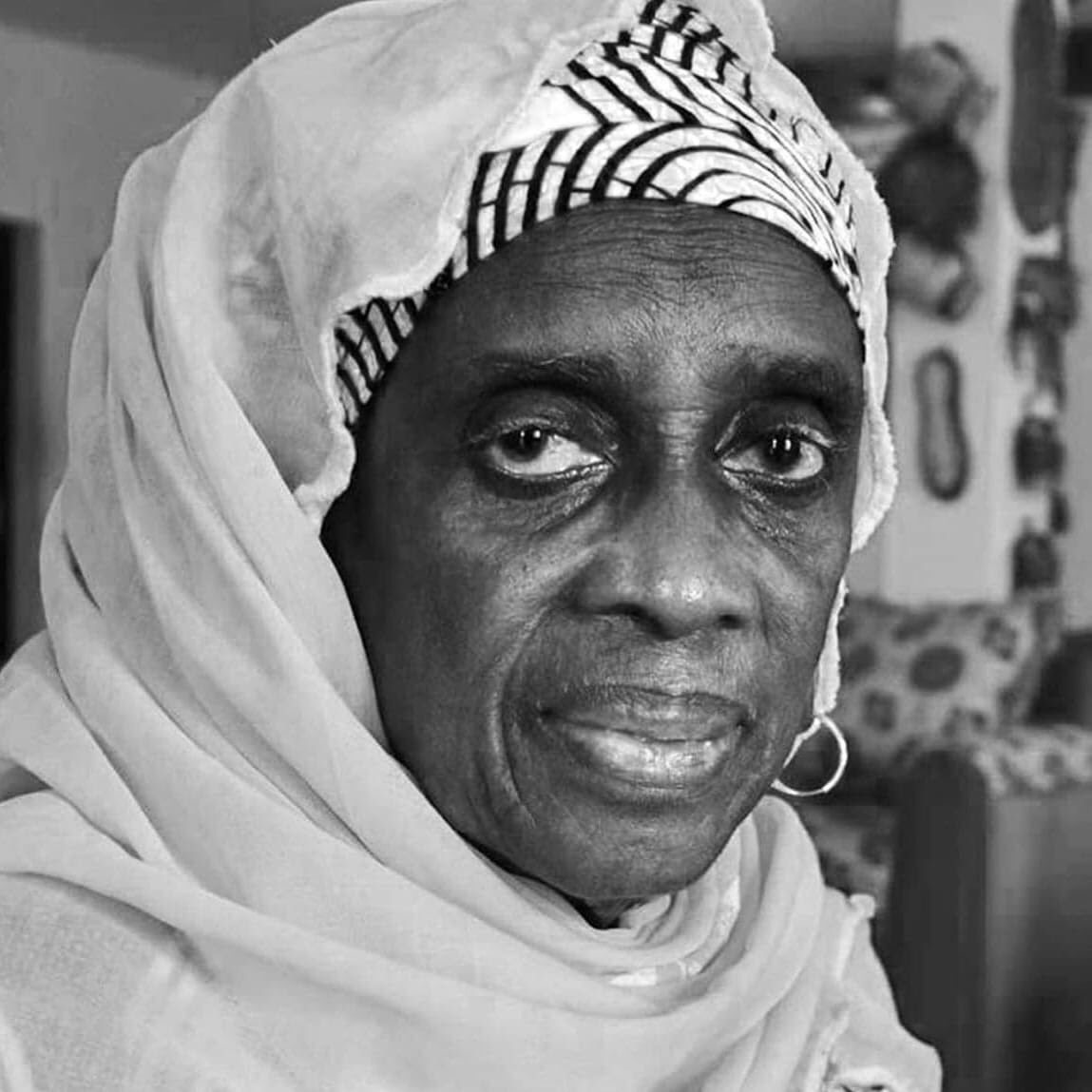
Aïssata Touré was born on 18th August 1938 in Dar El Barka and died on 10th August 2019 in Nouakchott. Kane was the first female minister in Mauritania when she was appointed Minister of Family Protection and Social Affairs. In 1961 she, along with several other women, founded the National Union of Mauritanian Women. She was also the founder and Director of Publication of the magazine “Mariemou”, devoted to the emancipation of Mauritanian women.
Aoua Keïta (Mali)
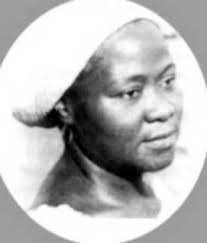
Aoua Keïta was born on 12th July 1912 in Bamako (then in French Sudan, now Mali) and died on 7th May 1980. She was one of the first black African women to obtain a midwifery diploma. A political activist fighting for the independence of Mali, she was the first Malian woman to be elected member of the Federation of Mali in Sikasso in 1959. The Federation of Mali brought together French Sudan, Senegal, Upper Volta and Dahomey.
Aoua Keïta participated in the elaboration of the Constitution of the Federation. She played a leading political role, alongside Modibo Keïta, the first president of Mali. She was also the only woman to take part in the drafting of the Malian Code of Marriage and Guardianship in 1962, which was a major step forward for women’s rights in Mali.
Carmen Pereira (Guinea Bissau)
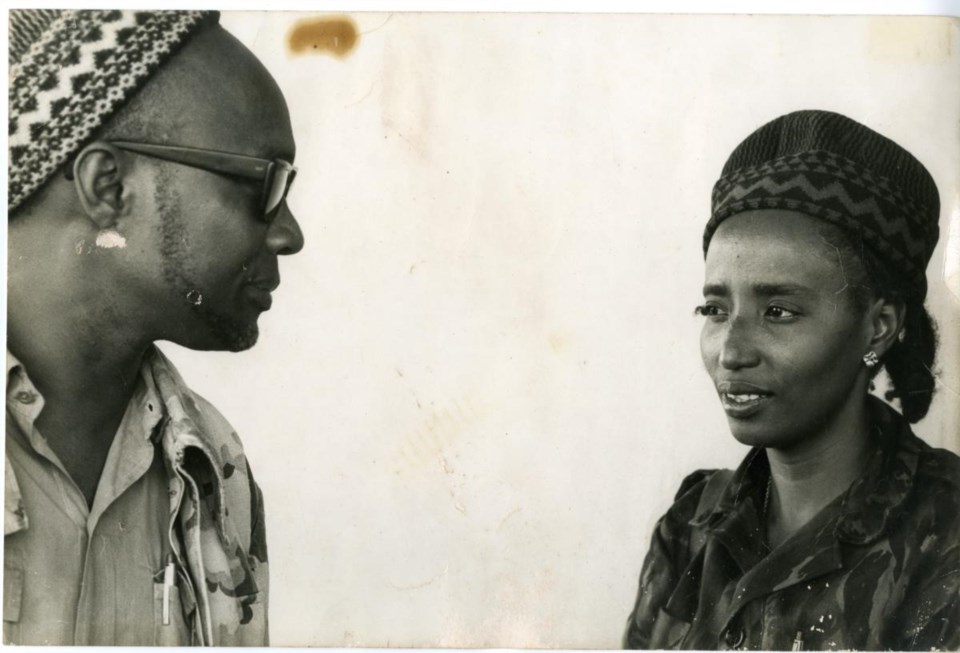
Carmen Pereira was born in 1936 and died on 4th June 2016 in Bissau (Guinea-Bissau). After being elected to the People’s National Assembly of Guinea-Bissau she served as its Deputy President from 1973 to 1984 and then its President until 1989. In 1984, when the Constitution was suspended following the coup d’état by João Bernardo Vieira, she became President of the Council of State (Acting President of the country) for 3 days until the promulgation of a new constitution, becoming the first female head of state in Africa and the only one in the history of Guinea-Bissau.
Ruth Perry (Liberia)
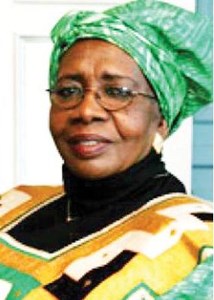
Ruth Perry was born on 16th July 1939 in Grand Cape Mount County, Liberia and died on 8th January 2017 in Columbus, Ohio. She ruled Liberia after the impeachment and murder of President Samuel Doe, and the end of the presidency of Amos Sawyer, becoming the first African woman to lead the country, in the form of a Council of State, serving in a collegial presidency. The latter included as a member Charles Taylor, who ruled the country from 1997 to 2003.
Richardene Kloppers (Namibia)
Richardene Kloppers was born in 1926 and died in 2014. She was Namibia’s first black teacher. After graduating as a teacher in South Africa, she resettled in Namibia where, in the early 1950s, she opened in Old Location, a neighborhood reserved for black Africans in the capital Windhoek, the first multiracial school, declared illegal by the administration of apartheid.
Rose Lokissim (Chad)
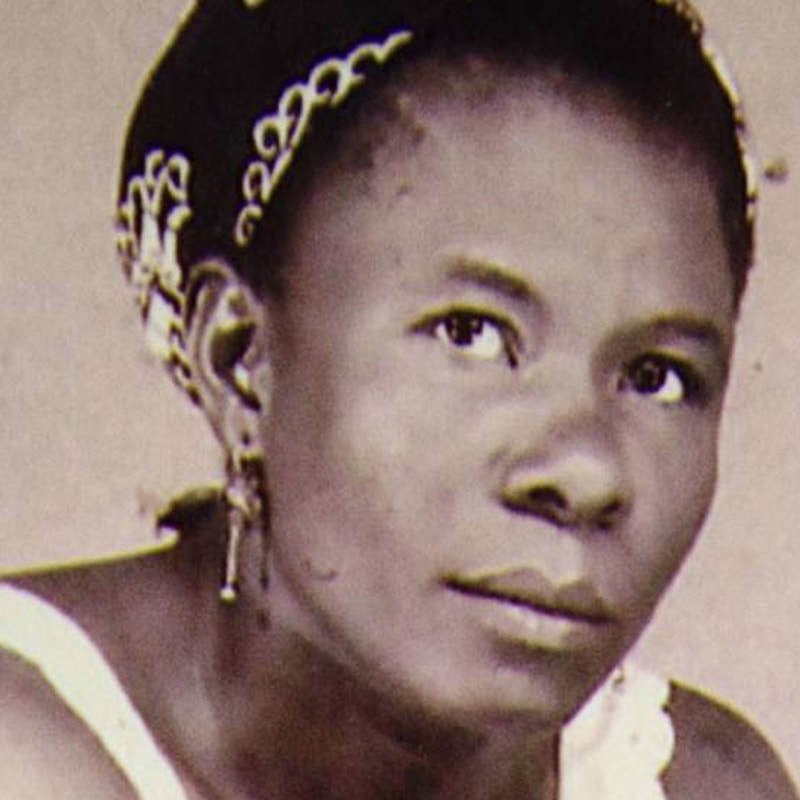
Rose Lokissim was born in 1953 and died on 15th May 1986. She was one of the first women to become an elite soldier in Chad. As a Chad soldier and an opponent of Hissène Habré, she died in detention after having recorded in writing and passing to the outside testimonies on the political police of the regime, the Directorate of Documentation and Security (DDS).
Jeanne-Marie Ruth-Rolland (Central African Republic)
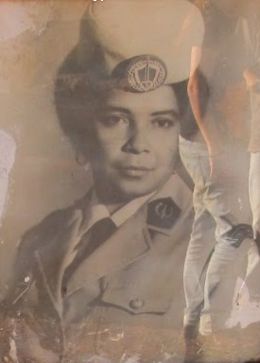
Jeanne-Marie Ruth-Rolland was born on 17th June 1937 and died on 4th June 1995 in Paris. She is considered the first female candidate for an African presidential election, under the colours of the Central African Republican Party that she founded and led. She was also responsible for social services in the Central African Armed Forces where she was a battalion commander. Later she became Minister of Social Affairs, the Status of Women and National Solidarity.
Alda do Espírito Santo (Sao Tome and Principe)
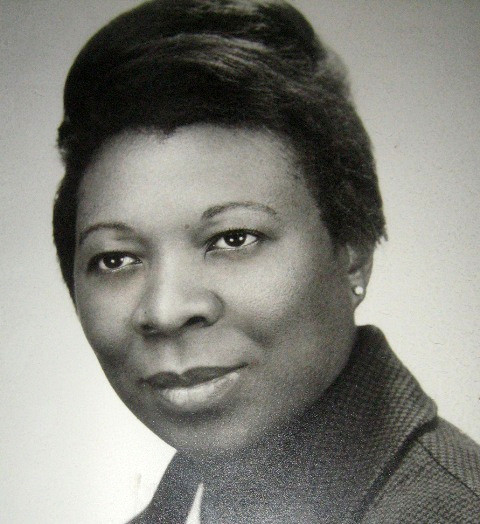
Alda do Espírito Santo was born on 30th April 1926 in Sao Tome and died on 9th March 2010 in Luanda (Angola). This woman of letters (poet) and politician was an emblematic figure in the struggle for the independence of Sao Tomé and Principe. She wrote the words of the country’s national anthem “Independência Total “.
While studying in Lisbon, Alda da Graça met students from other Portuguese colonies and joined a student association called “Casa dos Estudantes do Império” (the House of Students of the Empire, Ed). In 1951, she founded Centro de Estudos Africanos with other students interested in nationalism, including Mário Pinto de Andrade and Agostinho Neto from Angola, Noémia de Sousa and Marcelino dos Santos from Mozambique, and Amílcar Cabral from Guinea-Bissau.
Alda do Espírito Santo was Minister of Education and Culture and Minister of Information and Culture, as well as President of the National Assembly (between 12th May 1980 and 2nd April 1991). When she died, the government of Sao Tomé declared a national mourning period of five days.
Melody Millicent Danquah (Ghana)
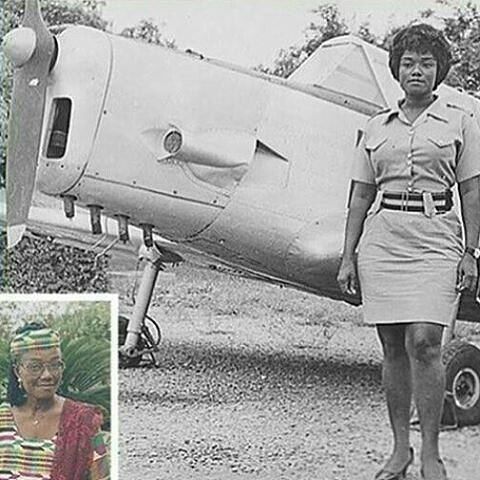
Melody Millicent was born on 6th January 1937 and died on 18th March 2016. She was Ghana’s first female airplane pilot. In 1963, she was among the first three women to be trained as pilots by the Ghana Air Force at the Ghana Military Academy. She completed her first solo flight on 22nd June 1964 aboard a de Havilland Canada DHC-1 Chipmunk and became the first Ghanaian woman to fly an aircraft.
Asli Hassan Abade (Somalia)
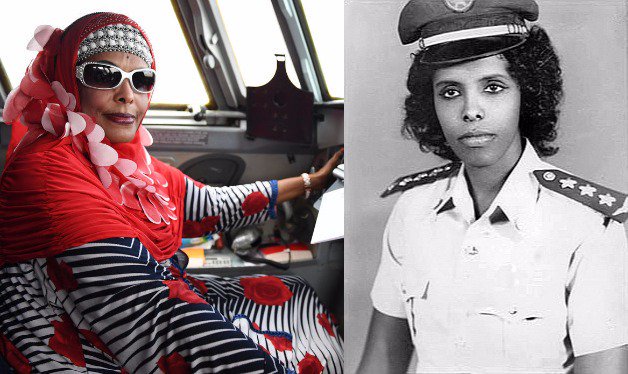
Born in 1958, Asli Hassan Abade is the first female pilot of the Somali Air Force. In the 1970s she trained in the US to be a pilot and completed her first solo flight in 1976.
She became a prominent member of the Somali Air Force and participated in the reconciliation process in the mid-2000s which led to the establishment of Somalia’s transitional federal government. She wore the colors of the Somali flag at all times for all official events, earning her the code name “Calansida” (the flag bearer).
In 2011, she airlifted medical supplies to a children’s hospital in Mogadishu during a drought. It was the first time in years that she had returned to Somalia, where she resides today. She lived in the USA for several years, where she married an American aeronautical engineer. She speaks 7 languages.
Jeanne Gervais (Ivory Coast)
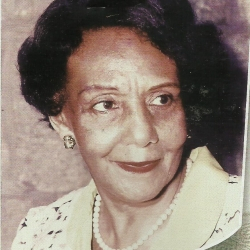
Jeanne Gervais was born on 6th June 1922 in Grand-Bassam, under the name of Jeanne Ahou Siefer-N’Dri, and died on 9th December 2012. She was the first female minister of Côte d’Ivoire, and was responsible for the status of women from 1976 to 1983.
A member of the political bureau of the Democratic Party of Côte d’Ivoire (PDCI), she was one of the first 3 women elected to the National Assembly of independent Côte d’Ivoire. She was an MP from 1965 to 1980.
Haissa Hima (Niger)
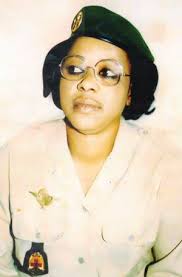
On 2nd February 1967, at the age of 17, Haissa Hima, better known as Haissa Mariko, became Niger’s first female parachutist. Born on 26th July 1951 she was recruited into the army in the class of 1966. She obtained her parachuting diploma on 20th February 1967, during the presentation ceremony of the Niger national flag to her class in Tondibia (North-West of Niamey).
Elisabeth Domitien (Central African Republic)
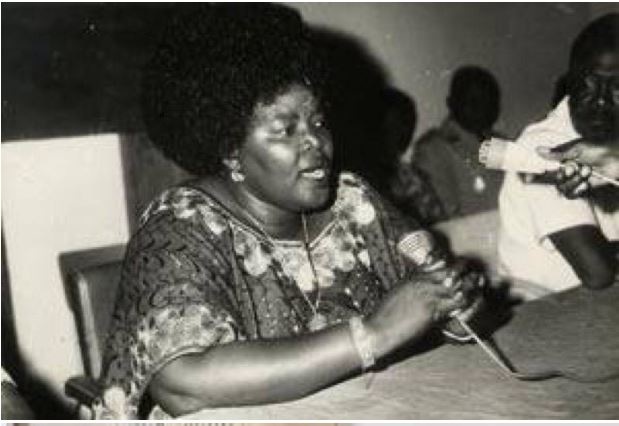
Elisabeth Domitien was born in 1925 and died in 2005 in Bimbo, Central African Republic. She was the first woman appointed to the post of Prime Minister in Africa, in 1974, and the 4th in the world. She was chosen by Jean-Bedel Bokassa, to whom she was close.
Elisabeth Domitien entered politics in the 1950s when she was just in her twenties. She joined the Movement for the Social Evolution of Black Africa (MÉSAN), the only legal political party at the time, of which she became vice-president in 1967.
She joined Barthélémy Boganda’s fight for the independence of the Central African Republic, then known as the Ubangi Chari. She is known for her outspokenness, her mastery of Sango (a language she speaks much more than French), her powerful speeches and her ability to mobilise crowds. Already at that time she castigated the Franc CFA and its conversion rates. She fell out with Bokassa because she opposed his plans to become an emperor. She was dismissed from her post as Prime Minister, but was recalled in 1979 to serve as the Emperor’s adviser.
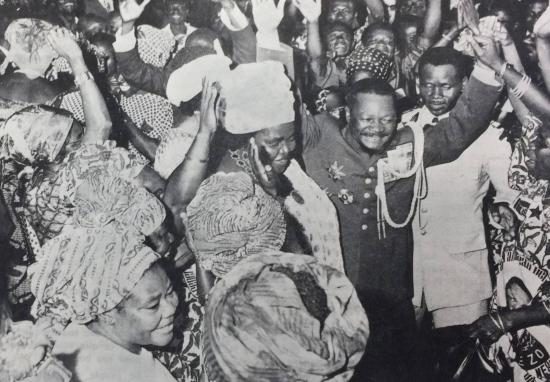
When Bokassa fell in September 1979, she was tried, then imprisoned in November 1979 and released in February 1981 after the court finally cleared her of the charges. Banned from politics by the Dacko government, she retired from public life to devote herself to her business in Bangui and Bimbo.
In September 2003, in her capacity as former Prime Minister, she participated in the national dialogue organised by General Bozizé to clear the wrongs of the past.
Elisabeth Domitien passed away on 26th April 2005 in Bimbo and received a state funeral on 10th May 2005.
Leopoldine Emma Doualla Bell Smith (Cameroon)
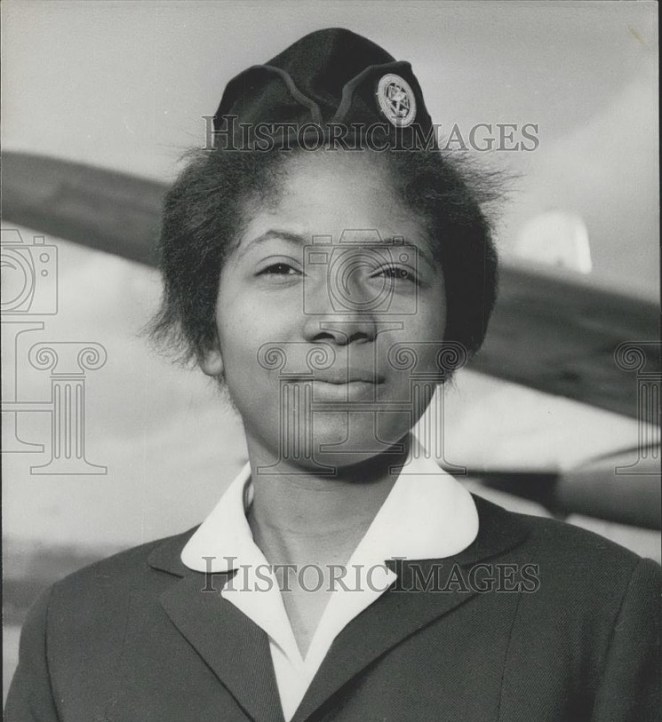
Leopoldine Emma Doualla Bell Smith is the first female flight attendant in history. After graduating from high school in 1956, at the age of 17, she underwent additional ground hostess training in Paris and flight training at UAT. She began flying in 1957 as a flight attendant with UAT, which later merged to form part of the Air Transport Union (UTA). In 1960, she joined Air Afrique, the airline created to serve eleven newly independent French-speaking nations that were former colonies of France, and was also promoted to Air Afrique flight attendant.
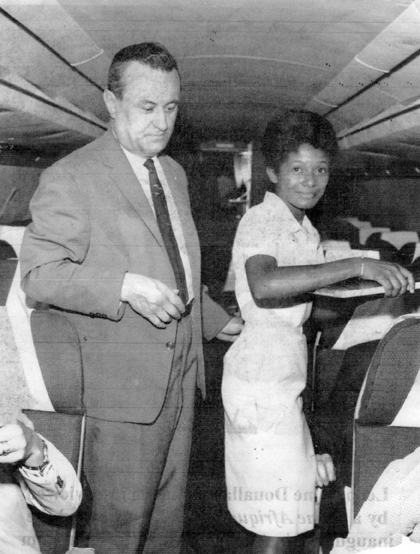
In 1969, after twelve years as a flight attendant, Leopoldine Emma Doualla Bell Smith left Air Afrique to become director of travel agency Reunited Transport Leaders in Libreville, Gabon. Six years later, she moved to Washington to study English at Georgetown University, where she also met her future husband, the American Leroy Smith. Subsequently, she returned to Gabon in 1976 and was hired by Air Zaire (Former national airline of the DRC) as station master and officer in charge at Libreville airport. She then worked in Peru and the USA. In 2015, she was honored on the 40th anniversary of Black Flight Attendants of America at the Flight Path Museum at Los Angeles International Airport.
Loffo Camara (Guinea)
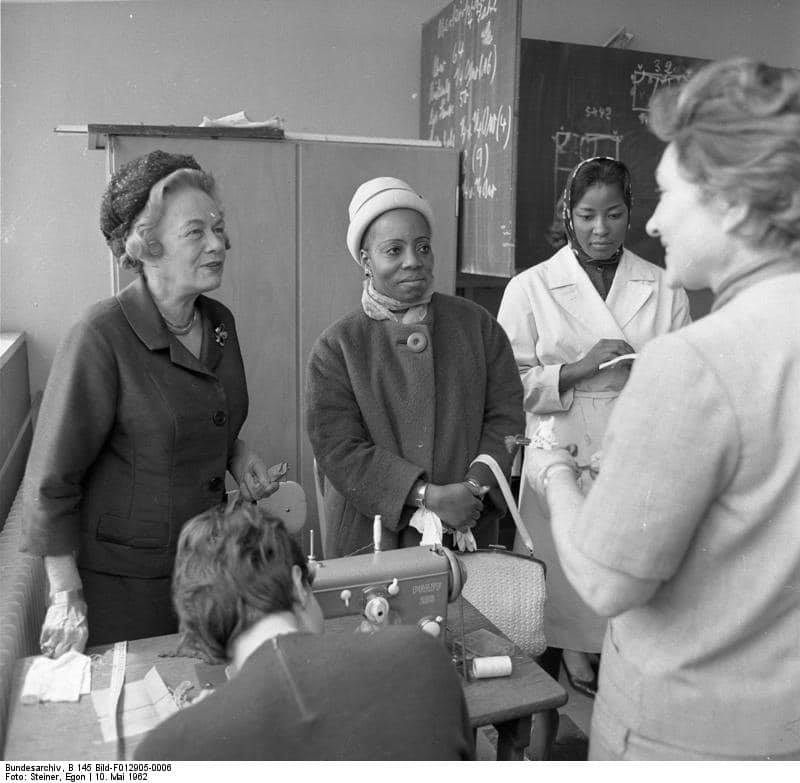
Born around 1925 and killed by a firing squad on 25th January 1971 in Conakry, Loffo Camara was the first female minister in Guinea after independence and also in all the former French colonies of sub-Saharan Africa. . A pioneering member of the Democratic Party of Guinea (PDG) and of the PDG’s National Political Bureau, this former midwife was Minister of Social Affairs from 1961 to 1968.
Gisèle Rabesahala (Madagascar)
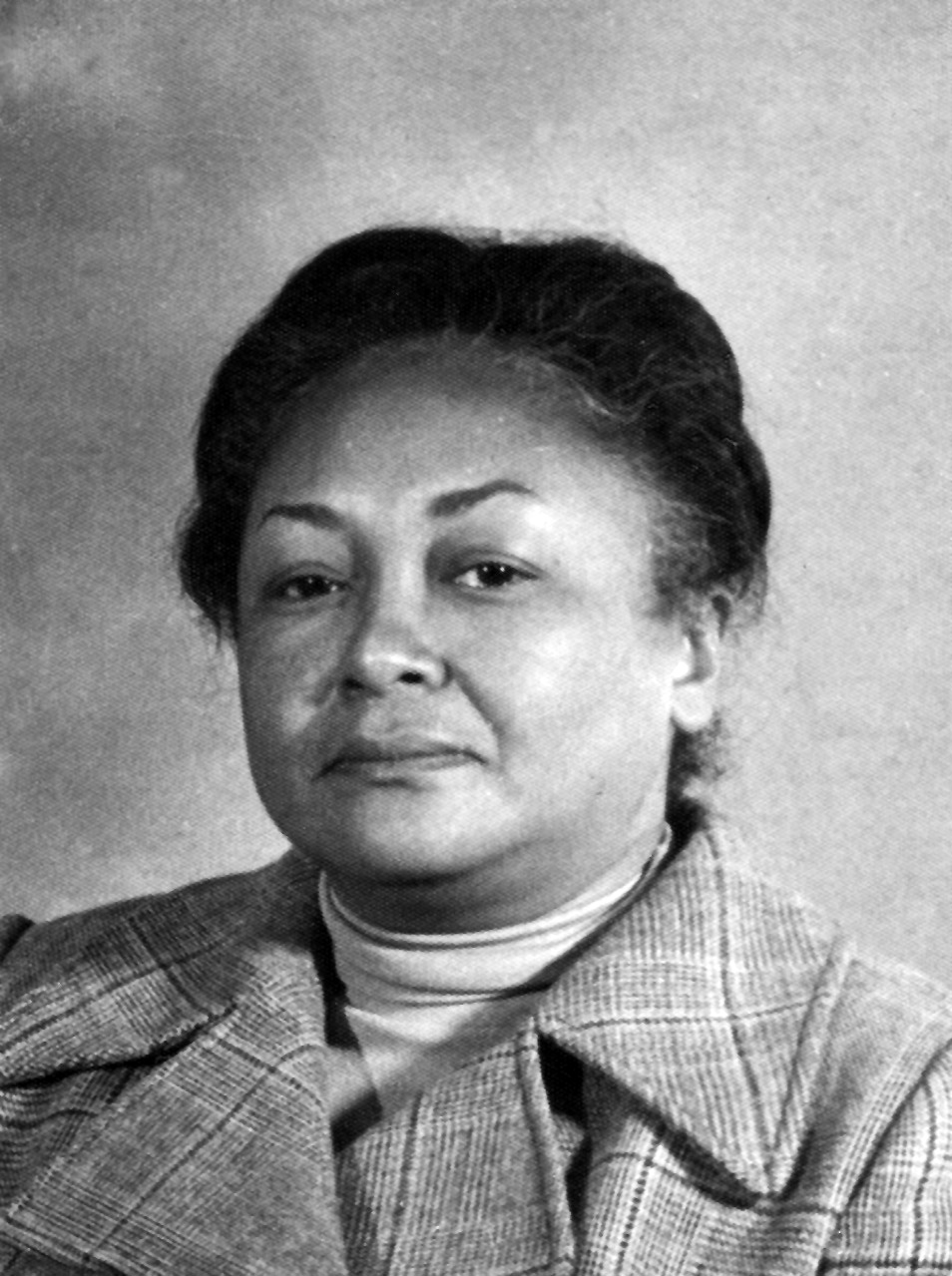
Gisèle Rabesahala was the first Madagascan woman to be elected municipal councilor (1956), political party leader (1958) and also the first Madagascan woman appointed minister in 1977. Nicknamed Gisou, she was born on 7th May 1929 in Antananarivo and died on 27th June 2011. She campaigned for the independence of her country.
Sophie Kanza (DRC)
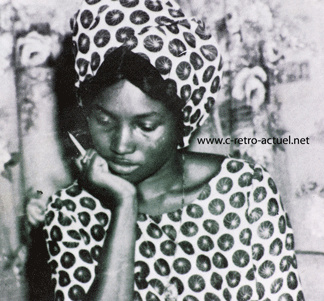
Sophie Kanza was born in Kinshasa on 8th February 1940 and died there on 2nd April 1999. She was the country’s first female minister. She was State Commissioner (Minister) for Social Affairs from 1966 to 1968. From 1969 to 1970, she was State Minister for Social Affairs. As a Doctor of Sociology at Harvard University, she was also a member of the board of directors of the United Nations Institute for Training and Research (UNITAR) and Deputy Assistant Director-General at UNESCO (1981-1985), as well as representative to the Director-General of UNESCO (1985-1988).
Adrienne Ekila Liyonda (DRC)

Born 16th October 1948 in Léopoldville (Kinshasa), Adrienne Ekila Liyonda was the first female Minister of Foreign Affairs and International Cooperation of the DRC from January 1987 to March 1988. She was the second woman in Africa to hold this post after Gaositwe Chiepe in Botswana in 1984.
Prior to her appointment, she was Ambassador Extraordinary of Zaire to Belgium and to the European Economic Commission (E.E.C.-now European Union) with jurisdiction over the Netherlands and Luxembourg. After obtaining her degree in economic law in 1974 at the Catholic University of Louvain (Belgium), she returned to Zaire where she was hired as economic advisor for the Zaïroise Press Agency for three years, before becoming an economic journalist.
In 1976 she joined the newly established Permanent Commission for the Reform of Zairian law and then joined the legal college of the Presidency of the Republic and the board of directors of the public company Gécamines. In 1983 she was appointed Minister of Social Affairs and Women’s Status. She then became Minister of Information and Press from March 1988 to May 1990. She later moved to Belgium with her husband where she died on 23rd June 2006 after an illness.
Elizabeth Rukidi Nyabongo (Uganda)
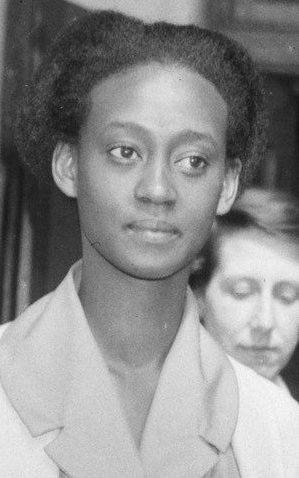
Also known as Princess Elizabeth of Toro, Elizabeth Rukidi Nyabongo was born on 9th February 1936 in Fort Portal (Uganda). A Ugandan aristocrat, lawyer, model and politician, she was the first woman from East Africa to be admitted to the English bar and posed for fashion magazines including Vogue in 1968. She was briefly Foreign Minister, from February to November 1974. She was also Uganda’s ambassador to the Vatican, Germany and the USA.
Flora Nwapa (Nigeria)
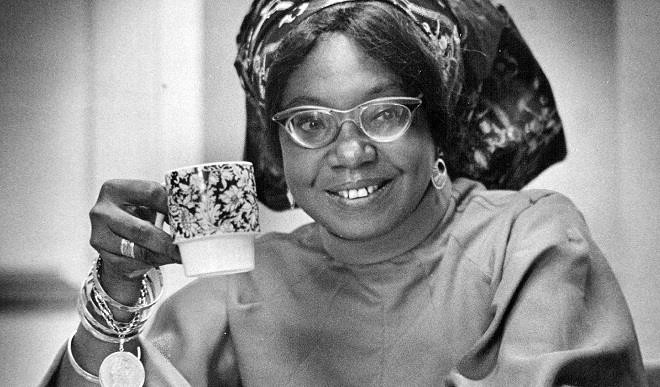
Florence Nwanzuruahu Nkiru Nwapa, better known as Flora Nwapa, was born on 13th January 1931 in Oguta and died on 16th October 1993, in Enugu. She was a Nigerian writer and editor. At the age of 35, she was the first African woman to publish a short story in the English language. Her work “Efuru” appeared in the “African Writers Series” collection of the Heinmann house in London, thanks in particular to Chinua Achebe. Flora Nwapa was also the first African woman to set up a major publishing house, Tana Press, in Enugu.
Isaura Gomes (Cabo Verde)
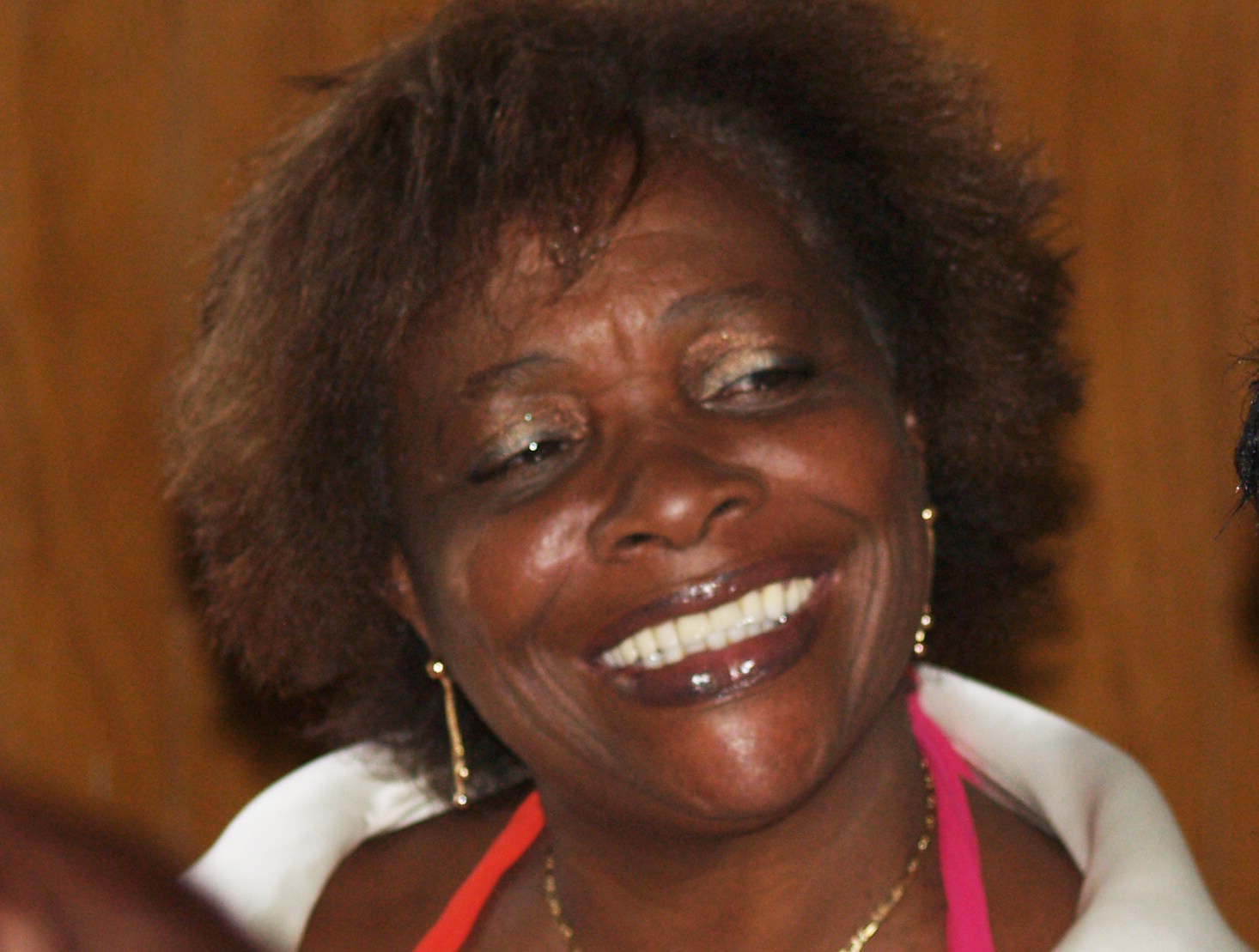
Born in 1944, Isaura Gomes was the first female mayor of Cape Verde, becoming mayor of São Vicente in 2004 and the first and only female member of the African Party for the Independence of Guinea and Cape Verde, from 1975 to 1981. After obtaining her degree in Pharmacy in Portugal in 1967, she briefly worked in Portugal before returning to Cape Verde, then still a Portuguese colony, in 1970. There she directed the secret activities of the African Party, for the independence of Cape Verde, in São Vicente, before Cape Verde became independent in 1975. In the 1980s, she was National Director of Pharmacies. She played an important role in the development of the health system in Cape Verde and trained laboratory and pharmacy technicians. She also played a major part in the international recognition of the Cape Verdean singer Cesária Évora, who was her friend. The singer was already well known on the island and Isaura pushed her to go to Lisbon to record songs on a compilation of island singers for the tenth anniversary of Cape Verde’s independence.
Agathe Pembellot (Congo-Brazzaville)
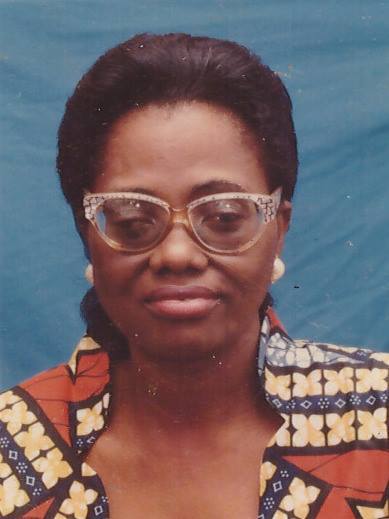
Agathe Félicie Lélo Pembellot was born 21st May 1942 in Pointe-Noire and died 13th October 2016 in the same city. After studying in Congo and in Paris, she was sworn in on 11th March 1973, at the age of 30, becoming the first female Congolese magistrate. She was also the first woman to be admitted as a member of the Supreme Court of Congo, the highest judicial body.
Alexanda Lima (Angola)

Alexanda Lima is the first female pilot of TAAG (Transportes Aéreos Angolanos), Angola’s national airline. She joined TAAG at the age of 18 as a flight attendant and started flying commercial flights in 1985, with Fokker aircraft, on short-haul domestic flights. She became Captain (Senior Pilot) in 2010 and remained the only female pilot of a Boeing 777-300 in Africa until 2014.
Paulina Chiziane (Mozambique)
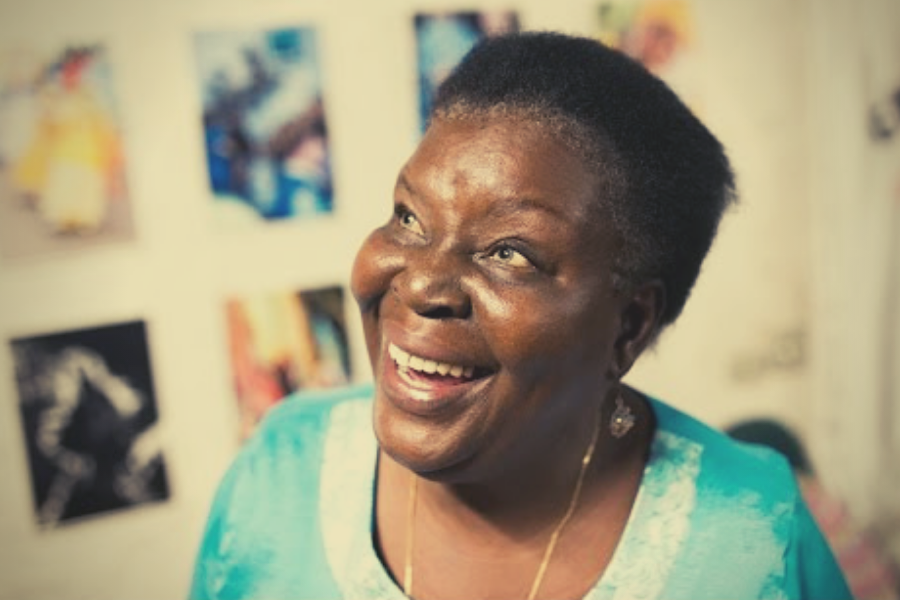
Born on 4th June 1955 in Manjacaze in the province of Gaza in Mozambique, Paulina Chiziane was the first Mozambican woman to publish a novel: Balada de Amor ao Vento (Ballad of Love in the Wind) (1990). She currently lives and works in the province of Zambezia. From the age of 18, she joined the Front for the Liberation of Mozambique (Frelimo), which won the first multiparty elections in 1994. But she gave up political life because she no longer shared the party’s choices and devoted herself to writing and publishing her works
Eunice Adabunu (Togo)
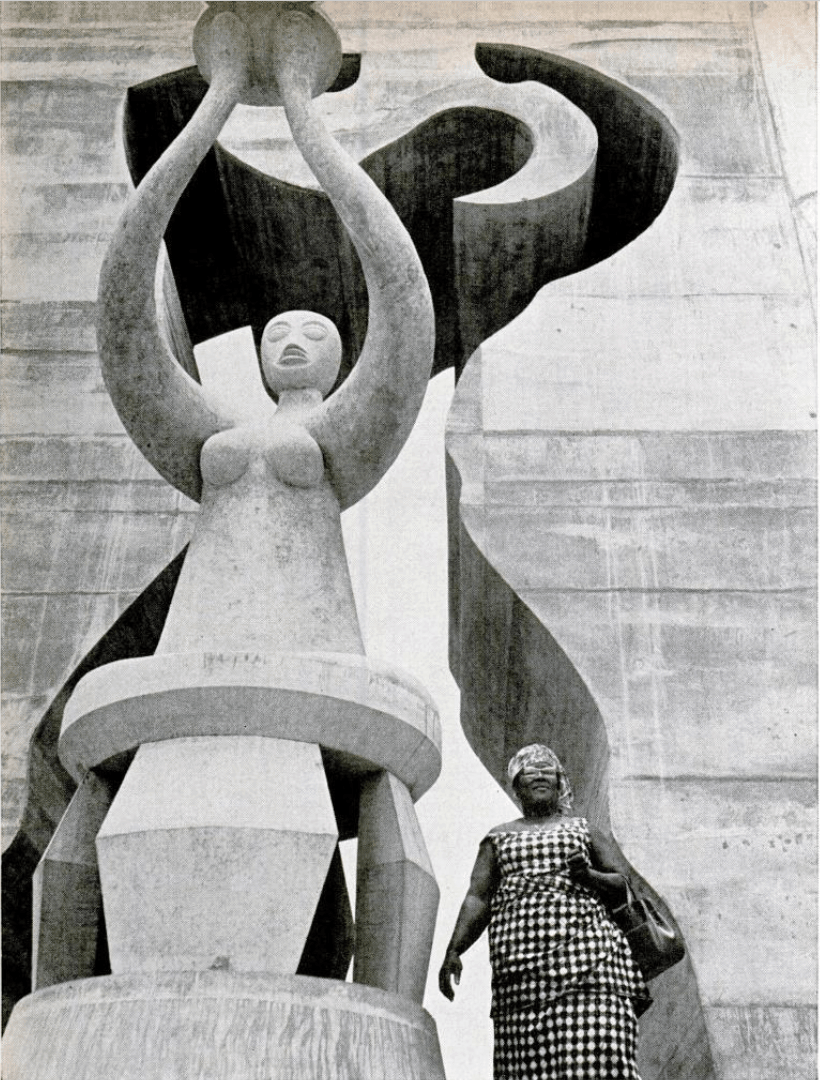
Born in 1919, she is the emblematic figure of the “Nana Benz”, or famous business women of Togo. She started trading in the street at the age of 11, selling donuts, sugar and pearls, before making her fortune in the loincloth trade at the Lomé market.
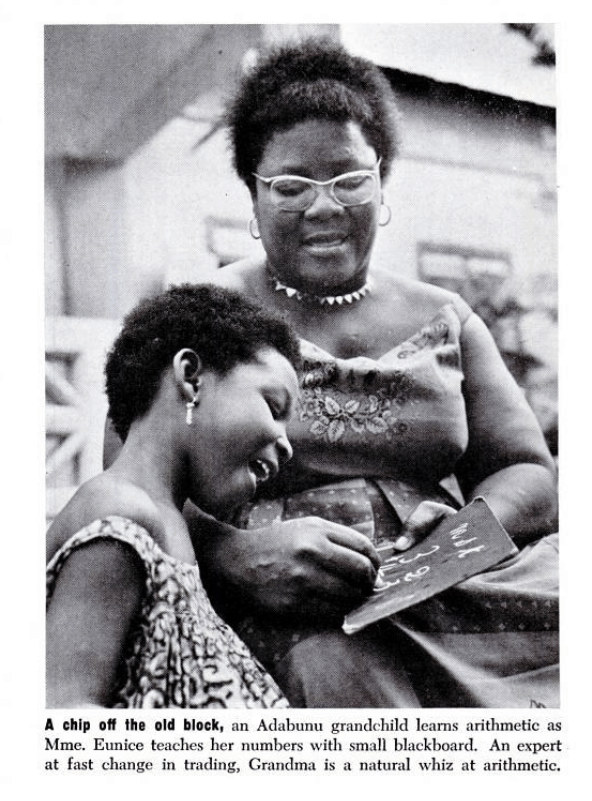
At the age of 47, after 23 years in business, she became politically engaged as one of the influential members and financial pillars of the independence party of Togo, the Togolese Unity Committee, of Sylvanus Olympio, when the former director of the UAC (United Africa Company) launched into the struggle for decolonisation.
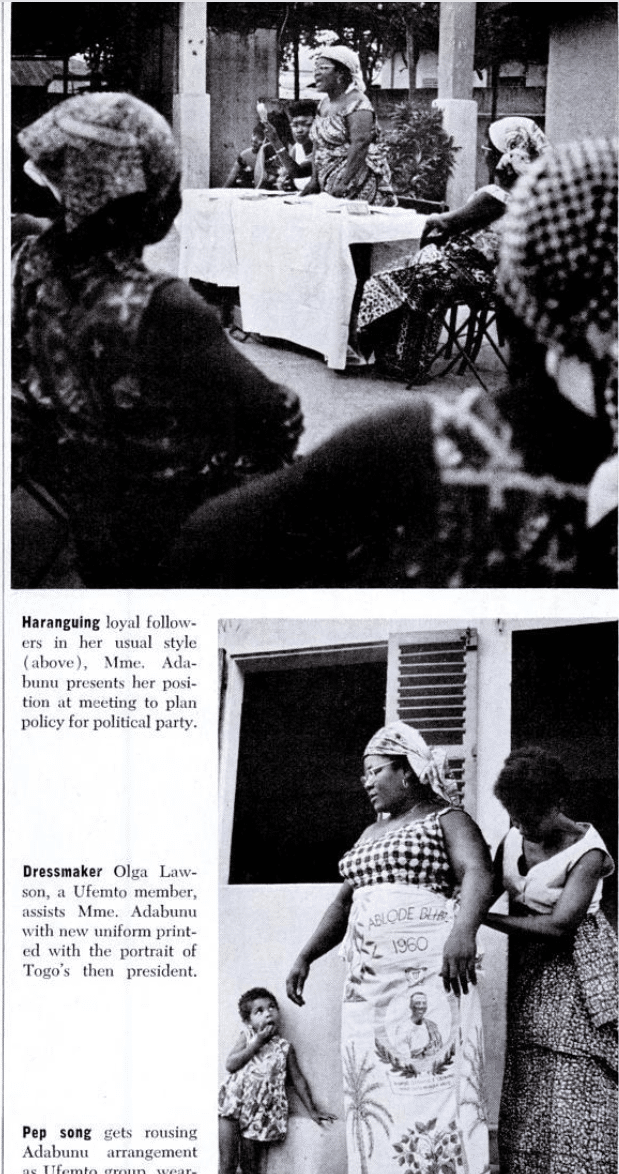
The famous American magazine “Ebony” devoted an article to her in March 1963. She is part of the first generation of the Nana Benz, with others like Patience Sanvee, (1928 – 2004), who debuted at 8 years old selling cigarettes and perfumes in the street; Dédé Rose Creppy, born in 1935; Laura Doe Bruce, Julie Bocco, Nadou Lawson, Ayélé Santana and Manavi Sewoa Ahiankpor.
Caroline Faye Diop (Senegal)

Caroline Faye Diop was born on 11th July 1923 in Foundiougne and died on 29th July 1992 in Dakar. She was a member of parliament between 1963 and 1978, the first woman in Senegal’s history to join the National Assembly. For ten years, she was the only female MP. In 1978, she was appointed Minister of Social Action, also becoming the first woman to hold a ministerial post in Senegal. Subsequently, she was Deputy Prime Minister from 1981 to 1982 and then Minister of State from 1982 to 1983.
Elizabeth Mary Okelo (Kenya)
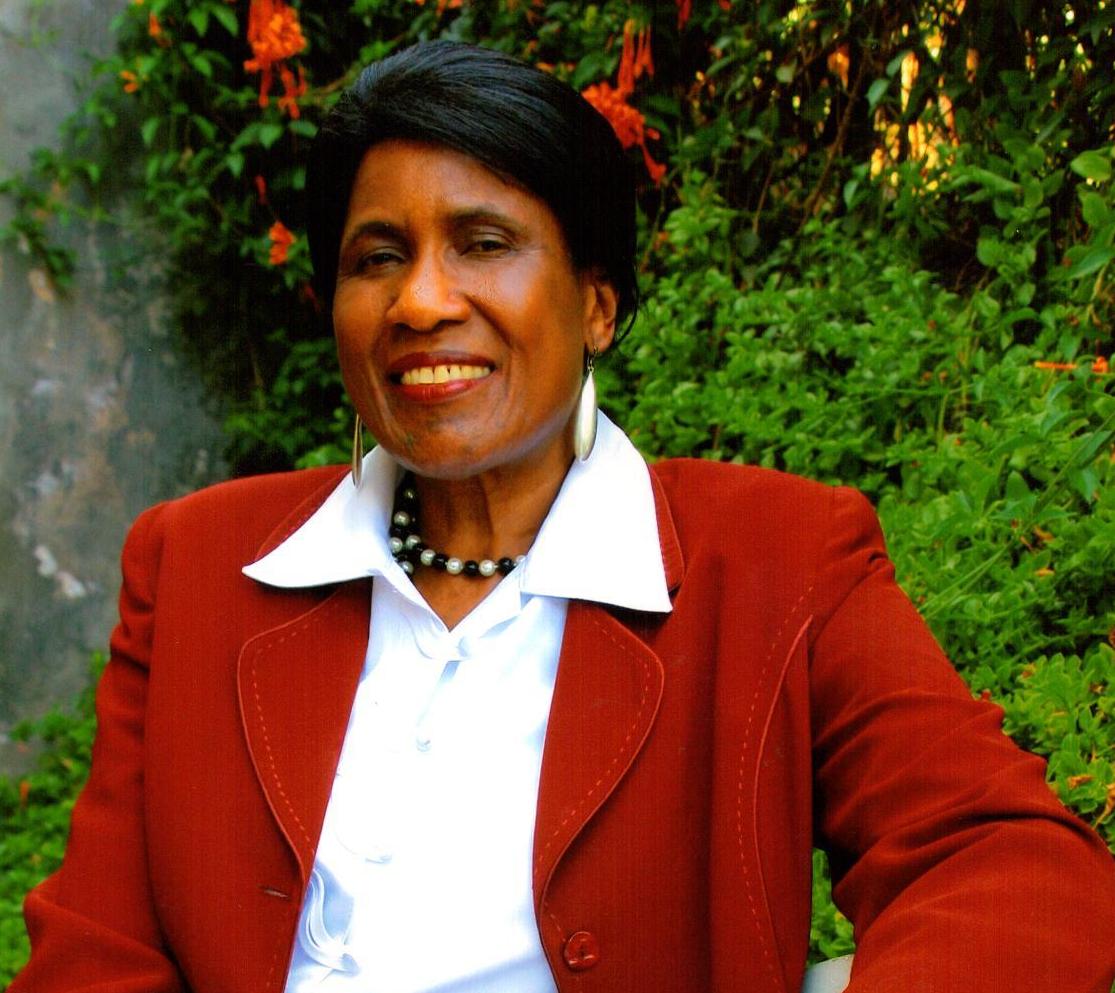
Elizabeth Mary Okelo was the first female bank manager in Kenya, where she headed Barclays Bank. She also founded Barclays Bank Women’s Association to mentor women. She has served and chaired numerous boards, worked at the African Development Bank, where she wrote a policy document on Women in Development, and at Women’s World Banking, a non-profit organisation which provides strategic support, technical assistance and information to a global network of 55 independent microfinance institutions (MFIs) and banks that provide credit and other financial services to low-income entrepreneurs in the developing world, in particular to women. She played a decisive role in the creation of 6 subsidiaries in other African countries. Elizabeth Mary Okelo was a member of a task force in Kenya which removed laws that discriminated against women. In addition, she is the founder and first president of the Kenya Women’s Finance Trust, a microfinance organisation that provides women with access to credit facilities. She is also the founder and executive director of Makini Schools, some of Kenya’s most renowned schools, founded in 1978.
Lucy Lameck (Tanzania)
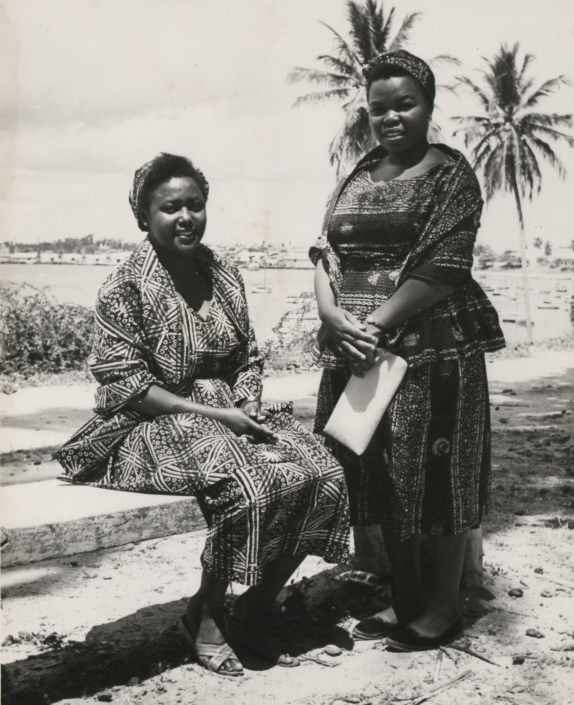
Lucy Selina Lameck Somi was born in 1934 near Mount Kilimanjaro. She trained as a nurse in 1950 before entering politics. She first entered the Tanganyika National Assembly in 1960, before being elected to the National Assembly of Tanzania in 1965, a seat she held until 1992.
She was the first woman to hold a ministerial post in the government of Tanzania, appointed by Julius Nyerere. From 1962 to 1965 she was Deputy Minister in charge of cooperatives and community development. She was then Deputy Minister of Health, between 1967 and 1972.
